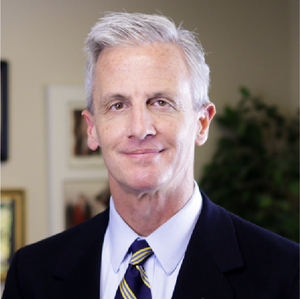Higher Education
Brandon Dutcher | January 1, 2017
Higher Ed Efficiency Questioned
Brandon Dutcher
Is higher education in Oklahoma “underfunded”?
You may be surprised to learn that states spend an average of about 1.6 percent of their GSP on higher education, according to economist Byron Schlomach, a scholar-in-residence at the Institute for the Study of Free Enterprise at Oklahoma State University. Oklahoma spends 1.9 percent of its GSP on higher education.
Getting to the national average would free up more than $500 million for lawmakers to spend on other things (K-12 teacher pay raises, for example).
But aren’t further subsidies necessary to help prevent tuition hikes? Last month in these pages, Manhattan Institute economist Preston Cooper pointed out that Oklahoma’s recent budget cuts “are not the primary cause of tuition increases. Not even close.” Indeed, he says, the main culprit is the availability of taxpayer subsidies through student loan and grant programs.
We could learn a lot from Purdue University president Mitch Daniels, a former governor who is earning national plaudits for cutting costs and freezing tuition. The former OMB director, a budget hawk extraordinaire, realizes higher education is inefficient. “You’re not going to find many places where you just take a cleaver and hack off a big piece of fat,” he says. “Just like a cow, it’s marbled through the whole enterprise.”
Oklahomans understand this. A SoonerPoll survey in February 2016 found that 82 percent of likely voters think higher education could be operated more efficiently. Fully 80 percent think the $411,000 annual compensation for Oklahoma’s chancellor of higher education is excessive.
Professor Richard Vedder, who helps compile the annual college rankings for Forbes, found that enhanced teaching loads for most OU and OSU professors would boost efficiency, resulting in $181 million in annual savings.
I don’t think most taxpayers realize the extent to which higher education is a lucrative jobs program for former state legislators and legislative staff. Or that UCO donated $10,000 to an international gender and sexuality conference it hosted last semester. Or that OU hosts a conference on “how to promote reproductive justice in red states.”
In October my alma mater paid $150,000 to bring hip-hop artists to Norman for homecoming. In 2015, inexplicably, OU agreed to pay $40,000 to a vile, misogynistic rapper with a history of hostile, racist, threatening chants. And this was six months after the SAE fraternity incident.
OU even has its own diversity czar. He is paid $220,000 annually to, among other things, oversee mandatory “diversity training” for new students, covering things like sexual identity, unconscious bias, and privilege.
OU recently spent $12,800 for a “bias hotline.” Now microaggressed crybullies can call 844-428-6531 and anonymously inform on their neighbors. (For some real-world examples of where this is heading, type “bias response Orwell” in your search engine.)
In some cases higher-education spending comes courtesy of private donations or other sources. But money is fungible. This is money that’s not being used to freeze tuition.
Taxpayers and their elected state lawmakers have every right to ask higher-education officials: If you’re so broke, why are you spending money on this stuff?
Brandon Dutcher is OCPA’s senior vice president. He is editor of the book Oklahoma Policy Blueprint, which was praised by Nobel Prize-winning economist Milton Friedman as “thorough, well-informed, and highly sophisticated.” His articles have appeared in Investor’s Business Daily, WORLD magazine, Forbes.com, Mises.org, The Oklahoman, the Tulsa World, and 200 newspapers throughout Oklahoma and the U.S.

Brandon Dutcher
Senior Vice President
Brandon Dutcher is OCPA’s senior vice president. Originally an OCPA board member, he joined the staff in 1995. Dutcher received his bachelor’s degree in political science from the University of Oklahoma. He received a master’s degree in journalism and a master’s degree in public policy from Regent University. Dutcher is listed in the Heritage Foundation Guide to Public Policy Experts, and is editor of the book Oklahoma Policy Blueprint, which was praised by Nobel Prize-winning economist Milton Friedman as “thorough, well-informed, and highly sophisticated.” His award-winning articles have appeared in Investor’s Business Daily, WORLD magazine, Forbes.com, Mises.org, The Oklahoman, the Tulsa World, and 200 newspapers throughout Oklahoma and the U.S. He and his wife, Susie, have six children and live in Edmond.